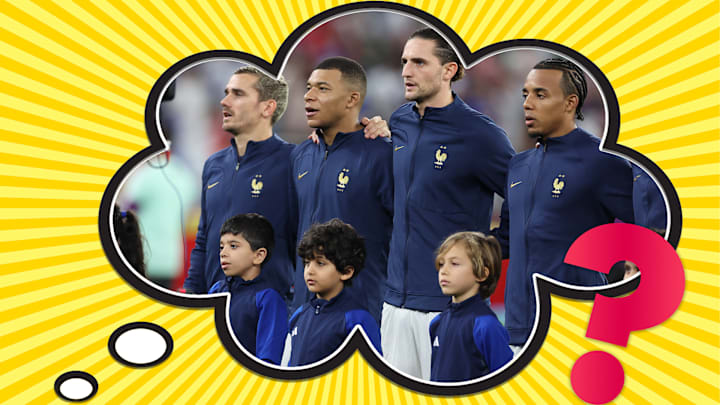Professional soccer’s cutest tradition is to have players file out onto the field hand in hand with little kids. These pint-sized escorts are typically clad in uniforms, too, and get to bask in the presence of famous footballers during the pre-game ceremonies.
Here’s everything you ever wanted to know about how it started, how it’s going, and how to get your kid on the pitch.
Early Beginnings
Though the exact origins of the custom are unclear, it’s been around at least since the mid-1990s. One oft-cited example is from a November 1996 match between Liverpool F.C. and Everton F.C.: The Liverpool Echo printed a photo of the referees standing with the two team captains, each flanked by a youth player. (Everton’s so-called “mascot” was none other than future football legend Wayne Rooney, who was just 11 years old at the time.) At the UEFA Euro 2000 Final between France and Italy, each starter walked out with a kid.
As PopSugar reports, the tradition gained more steam internationally after the 2002 World Cup, when FIFA and UNICEF had a child accompany each athlete onto the field as part of their “Say Yes to Children” campaign. According to a press release, it was intended as “a symbolic action reminding football enthusiasts that they have a major role to play in building a world fit for children.” The campaign also encouraged people to champion children by upholding 10 principles that ranged from “Ensure that no child is left out” to “Fight poverty.”
Why We Still Do It

These days, the rationale behind the child-player pairings and the process for getting your kid on the pitch vary widely by club and competition. McDonald’s, a longtime sponsor of the World Cup, often holds an international sweepstakes to select player escorts (an all-expenses-paid trip to the tournament is part of the prize).
“It’s meant to be as much a spectacle of being involved with the World Cup itself as having kids have the chance, culturally, to experience other children and other opportunities from around the world,” McDonald’s since-retired global marketing officer Dean Barrett told USA TODAY in 2014.
Organizations sometimes use the tradition in service of certain charitable or humanitarian goals. In 2007, for instance, the New England Revolution auctioned off escort spots for a game against the Los Angeles Galaxy (during David Beckham’s stint on the team) to benefit the Revolution’s charitable foundation. On a couple occasions in recent years, footballers have even walked out with dogs to promote pet adoption.
But the purpose isn’t always quite so specific. In general, featuring kids alongside the players is a great way for a club to foster positive publicity, a family-friendly atmosphere, and community involvement.
How to Clinch a Spot
It’s also a great way to make money. In 2014, The Guardian revealed that more than half of the Premier League’s clubs were charging hundreds of pounds per escort spot. Plenty of other clubs offer the spots for free—but that doesn’t necessarily mean it’s easy to get one.
Chelsea F.C., for example, chooses 250 applicants each year to add to a waitlist; and it takes another four years or so for those kids to get assigned to a game. Prospective escorts must be between 0 and 8 years old when they submit their applications (or, rather, when an adult submits on their behalf) to ensure that they won’t be too old by the time they’re selected. But the club is currently so backed up with requests that they’re not even accepting new applications “for the foreseeable future.”
In short, if you want your future child to one day walk among your favorite team’s starting lineup, you might want to research the process sooner than you thought you’d need to.
Have you got a Big Question you'd like us to answer? If so, let us know by emailing us at bigquestions@mentalfloss.com.
